Zombies - Interview
by Lisa Torem
published: 10 / 4 / 2016
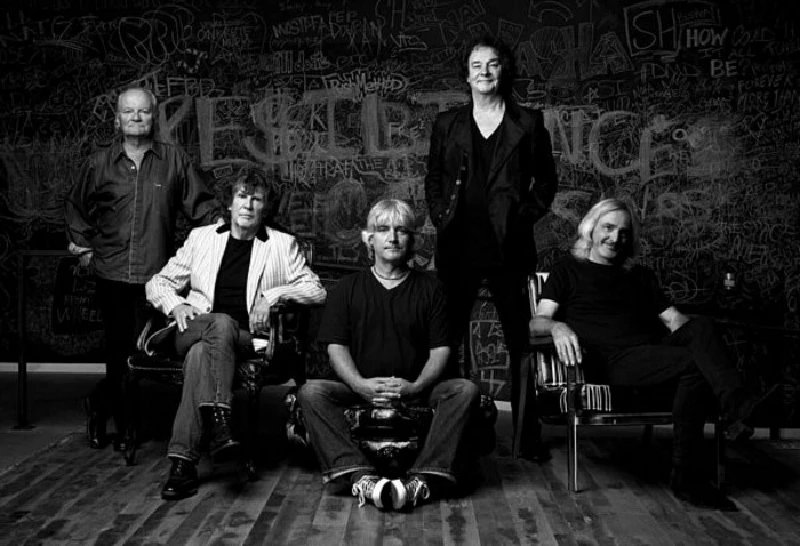
intro
Lisa Torem catches up with Colin Blunstone, solo artist and longtime lead singer of 1960s British group, the Zombies, where he reveals his views on songwriting, performing at outdoor festivals and life in the studio
Colin Blunstone’s expressive, sonorous voice and distinctive performance style have inspired countless musicians and millions of fans. It all started in Hertfordshire, England, in St. Albans, where the young teen began his career as a vocalist/songwriter after Rod Argent, Paul Atkinson and Hugh Grundy asked him and Paul Arnold to complete The Zombies in 1961. After winning a local contest, they were immediately offered a Decca recording contract based on their performance of Argent’s ‘She’s Not There’, a mysterious and beautiful ballad destined to become an international hit. Colin’s solo career has featured soulful guest appearances with The Alan Parsons Project and the recording of more than a dozen imaginative solo albums, starting with ‘One Year’ (Epic, 1971) and including ‘The Ghost of You and Me’ (2009), ‘On The Air Tonight’ (2012) and ‘Collected’ (2014). Contemporary musicians continue to pay homage to the Zombies’ ‘Odessey and Oracle’, which the band has honoured by producing a 30th Anniversary Edition of the album and a 40th year anniversary follow-up a decade later, which was recorded by their original lineup. Colin has also worked with Dave Stewart (‘What Became of the Broken Hearted’) and Manfred Mann. As a songwriter, he has recorded gorgeous original ballads such as ‘Caroline, Goodbye’ and the more recent, Latin-infused ‘Any Other Way', with its bittersweet back-story. Dividing his time between his solo band and “the current incarnation of The Zombies”, Colin remains an enthusiastic and diligent road warrior who shows no evidence of slowing down. In this, his second interview with Lisa Torem, he recaps life in the studio when recording ‘Breathe Out, Breathe In’, ‘Still Got That Hunger’, his views on songwriting and his love of outdoor festivals. He also pays tribute to several colleagues that have inspired and supported his brilliant and remarkable career. Yet The Zombies' legacy might never have happened because, by the time their now-classic album ‘Odessey and Oracle’ hit the airwaves, the band had already broken up. Colin supplies the answers to a number of Zombies-related mysteries. Read on. PB: Hi, Colin. In the 1960s, you released songs using the moniker Neil McArthur. Why did you choose to use a pseudonym at that time? CB: We did three singles and three B-sides and there were some extra tracks as well. When The Zombies finished...it was actually 1967 when we finished Odessey and Oracle, although ‘Time of the Season’ was a hit in America a year or more later. Because of the way the band had been managed, when The Zombies finished, the known writers, myself, Hugh Grundy and Paul Atkinson, found ourselves in a rather difficult financial situation and we all had to get jobs immediately. There was no money. So I was working for a few months in just an ordinary office and at that point ‘Time of The Season’ went up the charts in America and people started contacting me about getting back into the music business. At first, I wasn’t absolutely sure I wanted to get back into the music business—I was so sad and devastated when The Zombies finished, but eventually a producer, Mike Hurst, who had produced the early Cat Stevens records ‘Matthew and Son’, ‘I’m Gonna Get Me A Gun’ and ‘I Love My Dog’ talked me into going down in the evenings after my day job, to Olympic Studios, where the Stones had been recording, and just putting vocals on tracks, just to see how I felt about it. That developed over a few months and one of the tracks he asked me to record was, ‘She’s Not There’, and we managed to get a deal from these tracks and the idea came from Mike that I should change my name. It’s difficult for me to say now what was the reason, but I can only think that he was thinking, let’s make a break from The Zombies, but of course (laughs) the thing is, that we then went and recorded ‘She’s Not There’ so it’s a theory that maybe has got its weaknesses and he just came up with this idea. I wasn’t absolutely convinced that I was going to get back into the music business but the record was released, ‘She’s Not There’ by Neil McArthur and it was a top 30 single in this country. It wasn’t a hit in America. Suddenly I found that the door was open for me to come back into the music business and I was extremely happy that that situation had arisen, even if it was under the name of Neil McArthur. That went on for a few months and actually I was coming home from a party with Chris White, another member of The Zombies, and he said to me, Colin, why don’t you forget this Neil McArthur business and come and record with me and Rod Argent producing, and that’s when I started my first album under my real name. That album is called ‘One Year’ and from that album a single was taken, ‘Say You Don’t Mind, a Top Ten single. I was off and running. So much, it seems to me, of what happens in the music business--there’s an awful lot of chance in everything that happens. PB: In the late ‘70s, early to mid ‘80s and the late ‘90s, you sang with The Alan Parsons Project. What were some of the highlights of working with Alan and his team? CB: I was always a huge fan of Alan’s and I don’t know if he’ll remember, but I did actually ask him to produce an album of me as a solo artist, but by this time the project had taken off and he wasn’t really free to do that. We kind of kept missing one another because also he asked me to sing a track on ‘Tales of Mystery and Imagination’ but I was living in California and he was living in London, so it wasn’t possible. On the second album, there’s a song, ‘The Eagle Will Rise Again’, and I was introduced to the project on the second album. Alan had actually worked as a producer at Abbey Road and he worked on The Zombies’ last album, ‘Odessey and Oracle’—that’s where I met him, but then we realized that we both lived in and around the Hampstead area of London and we used to see one another in The Flask, which is a very nice pub. I used to see him down there at Saturday lunchtime. So I met him first at Abbey Road and then I knew him socially. It seemed a good idea to both of us to team up and work together and I was just thrilled because Alan is one of the best producers in the world without a doubt. It was a real thrill to work with him. And I worked with the late, great Eric Woolfson as well, a master writer, who wrote the most beautiful songs. I loved working with both of them. PB: This summer sounds like a busy one. The Cornbury Festival is coming up in July. Tom Jones, Lulu and Billy Ocean performed there last year and this year features Booker T., Seal, Lucinda Williams and as headliners, The Zombies. CB: I’m not sure about the billing to be absolutely honest. I’d be very flattered if we are. PB: You’ll be playing Sunday evening so I imagine everyone flocks to the final act on the last night. CB: Well, if we’re headlining, that’s fantastic. I’ve just got Cornbury Festival written in my docket. That’s all I know really. It would be lovely if we were headlining. I’m just happy to get out and play. I don’t want to sound unambitious, but it’s really good fun. Hopefully the weather will be good. It’s the only thing to worry about in this country. It’s really exhilarating to play an open-air stage and to, hopefully, a sizable audience. It’s a wonderful experience. I always have to pinch myself because so much of what has happened in my career has not been what I was expecting and this present incarnation of The Zombies is a great example. I don’t know if Rod told this to you but we initially got back together again to do six concerts in 1999 and it’s just gone on to, here we are, 2016. And we might be headlining the Cornbury Festival and it wasn’t quite what we were expecting really. We were just going to have a fun six concerts and then whatever our solo careers demanded us to do. But we thought it would be a great idea to just keep going and it’s been very unexpected but for that it makes it even more pleasurable that we’ve got this wonderful band together and we’re playing some of the biggest festivals in the world. PB: You’ve played the Stern Groves Fest, Rock and Blues Fest. CB: We’ve played the Guild Fest, too. I don’t think it runs anymore. It’s just down the road in Surrey but we’ve played many big festivals in the States. It’s great. I love it. PB: “When I write a song, certainly, lyrically, they’re usually quite autobiographical and this is no exception”. You stated this in 2011 about your original ballad, ‘Any Other Way’ from ‘Breath Out, Breathe In’. Those beautiful lyrics synch up seamlessly with the melody. Can you discuss how the story behind this song evolved and, too, about deciding to base The Zombies’ first music video around it. Did you have creative control? CB: It’s true that most of my songs are usually either based on something that’s really happened to me—it doesn’t have to be absolutely literal but the idea is based on something that has happened to me or it is about something that has happened to someone I know. So there usually is a specific story behind most of the songs that I write. And this is no exception. I sort of have to think back to times of boy/girl relationships to some extent because I’ve been married for 28 years (Laughs). You just have to think back to memories gone by. (Colin sings the first few lines of ‘Any Other Way’): “Still remember seeing you standing there, alone in a crowded room/ Suddenly your presence filled the air, nothing that I can do…” Well, that happened. I walked into a room and met someone who was absolutely devastatingly beautiful and just completely filled the room with her presence. I remember that. We did get to know one another. Things didn’t work out and you start to think that if there had been any other way, maybe something would have happened, but that’s just how it worked out. It is an example of how I write songs. Unfortunately it means I have to literally live the song, which means I’m not the most prolific of writers (Laughs) because it gets a bit exhausting. I remember a manager in the ‘70s, bless him, he used to encourage me to break up with girlfriends because he knew that then I’d have a good spell of writing and it seemed a little bit cruel. I never did, but he used to encourage that direction in the girlfriend/affair department in my relationships. That kind of covers how I write, but it doesn’t always have to start like that. It can start with a title or a chord progression. I just try and grab hold of something and then gradually build a song up. I sometimes think it’s a little bit like a crossword. If you can find a word in the middle that you know is right and then you have got something to build on and that’s often how I write songs. As for the video, to a large extent, we were touring around that time and I wouldn’t say we had any artistic input into that video. We literally came around to a tavern and filmed our insert in the video and I think it’s basically because we were constantly on the road and so it was kind of put together for us. PB: It was very sensitively done and the song really shines through. CB: Thank you. I’m really glad you asked me about that song, it’s a particular favourite of mine, and I want to write more. At the moment, I’ve got a month off and my main artistic aim is to try and get some songs started and it’s a slightly different source; a way of thinking. You have to get into the right kind of frame of mind to start writing and that’s what I’m trying to attain at the moment, to get myself into that frame of mind. Suddenly you can find songs just start to fall out, but it’s so hard to get going. I find it very challenging to start writing songs. PB: It’s kind of a Zen thing, isn’t it? Some people get energized by city noise; some by the quiet of the countryside. It can be a challenge to tap into it. CB: It is a bit like that. What does help is when you’ve got a recording date. You’ve got a deadline. I think that helps. That really helps focus your mind, but I’m just trying to find a way into an idea and that’s what I’m doing at the moment. PB: You have also said: “I thought that songwriters were a different kind of person. I thought it was a different craft.” I thought that was interesting. I believe we think of you as a prolific songwriter, but it seemed like you were saving that title for others. Do you still feel that way? CB: I can remember saying that. I can remember feeling it in the 1960s. Really The Beatles changed everything. They made recordings so artists realised they didn’t have to go to songwriters to get songs because even on their first album they wrote most of the album and then after that they wrote everything. It just made everyone think, Well, of course, we can write songs ourselves. I remember thinking like that when suddenly Rod Argent and Chris White turned up with two beautiful songs for our first session. I had no idea they could write songs and I was completely taken aback, but I think I learned a lot from seeing them writing songs and perhaps watching a little bit of how the process of them writing a song works. I think it taught me a little bit of the craft and it certainly taught me that musicians can write songs. You don’t have to be a different kind of person. It isn’t just a different craft. It’s something that musicians do. I might sound a little bit naïve but remember I was eighteen or nineteen years old. I knew nothing about the music business and that’s just how I felt at the time. Now I know that as a musician, you just have to apply yourself. The songs are there. You just have to find them. PB: You mentioned Rod Argent’s writing. Rod knows your vocal range and recognizes your capacity to express strong emotion. After all these years, have you two developed a kind of sixth sense, a type of telepathy? CB: Perhaps we have. I still feel very comfortable working with Rod. I think I feel an extra confidence working with him because I know he understands my voice and he understands me as a performer. I love his songs. Rod has often said that he learned to write songs from my voice. And as a professional vocalist, I learned to sing, singing his songs and we still work at that performance all the time. When he writes a song for me, we spend a long time, especially talking about phrasing. We’ll go through it line by line, just trying to get that phrasing absolutely right so that when I come to record it, I don’t have to think about the phrasing because it’s set in my mind. So maybe there is a form of telepathy between us in that we’ve worked together off and on since 1961. It is amazing, isn’t it? PB: Yes, it really is. The Zombies are part of an elite group that wrote and performed in the 1960s and, although the lineup has been altered, is still going strong. There are just a handful of bands that share such a legacy. CB: I don’t think many bands have been together since 1961. We’ve had our gaps when it wasn’t working and, ironically, when the band wasn’t working, Rod and I were working in one capacity or another, together. So he has been a fairly constant name in my working life since 1961. PB: ‘Collected’ includes 60 tracks done over 50 years. How does it feel to review that collection? CB: I think I’m extremely flattered. Universal in Holland wanted to put that CD together and they put a lot of time and effort and love into that project because they found a lot of the tracks. They were really obscure and really hard to get a hold of. It meant that they did have to put a lot of work into it. I was thrilled that they wanted to put that commitment into the project and in Holland it was actually a Top 20 album which, again, was unexpected. When these successes come and they’re not expected, it makes it even sweeter. It makes it so much better. I thought, I can’t believe this: a three CD collection of my career in the Top 20 in Holland. It’s absolutely fantastic. PB: You were involved in the project ‘The Day The Music Dies’ in honour of Radio Veronica. Was that about a ship which broadcast American music? CB: I’m not sure if Veronica was a ship or not. It probably was but in the early ‘70s, that’s when I remember it, it was a very powerful radio station in Europe, and, again, specifically in Holland. It was everything that Radio Caroline was to the UK. There was a show there about nine or ten months ago. I went over to Holland and sang three or four songs with a Dutch band. They were very, very good players. PB: In St. Albans, there is a special blue plaque at the Blacksmith’s Arms. Can you explain its significance? CB: When it was unveiled, we were all there. It’s really great because that’s where we met. We were too young to meet in the pub, because we were only fifteen so we met outside. That was an idea to put up a commemorative plaque. It looks great and if ever I’m in St. Albans, I can’t help but drive by and just have a look and make sure it’s still there. PB: Your solo group will be touring the UK in April. Can you tell us a bit about the band and what will be on the set list? CB: They’re all lovely players. Steve Rodford from The Zombies is the drummer and the other guys are guys that I’ve played with for years. They’ve all played with huge names and they’re very successful in their own right. But what I try to do with the set list is, I try to make it very separate from The Zombies so that the most I usually play is two songs out of twenty-three or twenty-four songs. I try to make it very specifically a solo show so that there’s no conflict and so that’s how I base the set list. A lot of these songs were hits in the UK or Europe. Songs like ‘Say You Don’t Mind,’ ‘I Don’t Believe in Miracles’; hits in Holland like ‘Andorra’, Wonderful’ and ‘Old and Wise’. I usually play ‘Old and Wise’, an Alan Parsons song, which I recorded on ‘Eye in the Sky’. It’s a beautiful song. That will be the biggest song that we play. People love that song. So the thing for me is to make it very specifically a solo set list, rather than me singing Zombies’ tunes. PB: What are your plans for touring in the States? CB: We’re coming to the States in May. We’ve just been over and we played with the Moody Blues. In the last four years, they’ve done three Caribbean cruises on huge liners and they’re on the top of the bill and we’ve played with them. We’ve just come back from that. We played four other concerts while we were in Florida. But we’re coming back in May and I think we’re also coming back in the Autumn as well. PB: How did you like mingling with fans on the cruise? CB: It’s very interesting because you are literally living with your audience. It’s great because you get to know (laughs) so many people. What we have found is that people we had met on the first cruise, which was probably four years ago, they come out to our shows. Originally, it was very much a Moody Blues Cruise and it still is. The backbone of the people who are there are there to see the Moody Blues, but as you get to know people, they come to your concerts, too. We’ve got some very solid friendships over the years from going on The Moody Blues Cruise. PB: ‘Odessey and Oracle’ continues to inspire contemporary artists. CB: And there are plans to celebrate the 50th anniversary of Odessey and Oracle. It was released in 1967 and the 50th year anniversary will be 2017 and we’re planning to come over in the Spring. I believe it will start in March and when we do that, we have all the original members with us and we also use our current incarnation of The Zombies and extra players as well. So we replicate every note on ‘Odessey and Oracle’, every harmony, and every solo. We’ve done it a couple of times before and this will definitely be the last time. It’s really quite interesting so I really do recommend that. PB: I know The Zombies have quite a lot of teen fans. CB: I think people are really surprised when they come to our concerts that we have such a cross-section. We have people who have followed us since 1964 that are roughly our age. But we also have, at the other side of the spectrum, we have a teenage section in the audience and then twenties and thirties and so on. The ages are very mixed at our concerts, which is great. I think a lot of it is down to Rod and Chris’s writing. The songs that they write still sound fresh. They don’t sound stuck in the ‘60s. I suppose you can tell from the recording technique that the songs were recorded in the ‘60s—the tracks were recorded in the ‘60s, but the songs, themselves, translate very well to the present time. PB: Rod has mentioned that you still are committed to creating an organic sound and that you play together in the studio, for example, as opposed to doing overdubs. CB: And especially on this last album, ‘Still Got That Hunger’, which got into the US Top Hundred Billboard Charts. Billboard actually phoned us up. We were in five Billboard Charts, they have all sorts of charts, but we were in the main one, we got into the Top 100 and they said, do you realize this is the first time you’ve been in The Billboard Top 100 for fifty years? I don’t think too many people can say that. (Laughs). We took that as a backhanded compliment, actually. But particularly, with this album, we did all record in the studio at the same time, including the lead vocals and all the solos, so in a way, it’s practically a live album, but of course, we were performing in a studio environment. We weren’t on a stage, but we’ve really,really enjoyed it. In many ways, I find it easier to sing live with a band, because there’s the thrill of the live performance. You just get carried away. You’re not thinking about, should I attack this vocal more, should I be singing more on the beat? All those kinds of thoughts that go through your mind when you’re doing your lead vocal as an overdub. They all disappear because you’re playing live with your mates. We’re all responding to one another. The guitars are responding to the bass. The drums are responding to the keyboard and I’m responding to them. PB: You mentioned in a video that you enjoy painting. What appeals to you visually? CB: I love watercolours. I collect watercolours, but it’s very much a hobby. I wouldn’t say it’s serious. I just love going to art or junk shops and perhaps finding a little treasure and I’ve gotten many, many watercolours. And I like painting but it’s just a fun thing. I just paint what’s in front of me. I don’t think I have a second career in painting. It’s just relaxing, really. PB; I did speak to a musician once who said that he thought in colours when he was performing on stage. So sometimes there’s a correlation. CB: I recorded a song once that’s all about the same thing. I didn’t write it. It was written by Sebastian Santa Maria. It’s fantastic writing and he said exactly the same thing in his lyric, that sounds are like colours. And I love that, actually, it’s great. PB: So, Colin, you’ve been in the business for more than fifty years and you’ve had an incredible career. Obviously, you know a lot about social media, performance, writing and how to handle fame. So if the nineteen-year-old Colin Blunstone rang your doorbell right now, asking for advice, what would you say? CB: I would say, write and record music that you love, rather than thinking about trying to be commercial. Write from the heart and perform from the heart. It’s important. And don’t worry about being commercial or being famous. It’s all illusion, all that stuff. Try and develop yourself as an artist and try to develop your craft. Songwriting and performing are crafts and you should be proud that you’re involved in that craft and you never stop learning, so just try to develop your craft. That’s what I would say. PB: Thank you. The Zombies will be performing at the Cornbury Music Festival at Great Tew Park, Oxfordshire on the 10th July. More information at www.cornburyfestival.com
Band Links:-
https://www.thezombiesmusic.com/https://en-gb.facebook.com/thezombiesmusic/
https://twitter.com/TheZombiesMusic
http://www.colinblunstone.net/
https://en-gb.facebook.com/colinblunstone
https://twitter.com/colinblunstone
Play in YouTube:-
Have a Listen:-
Picture Gallery:-
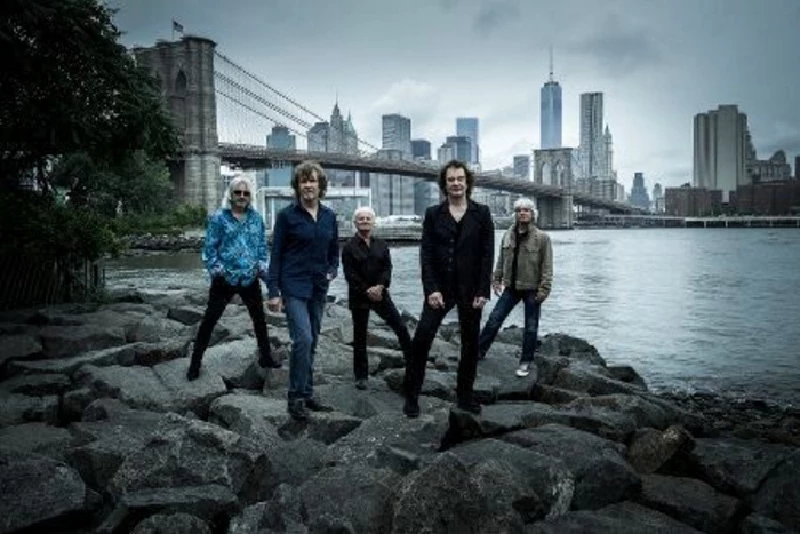
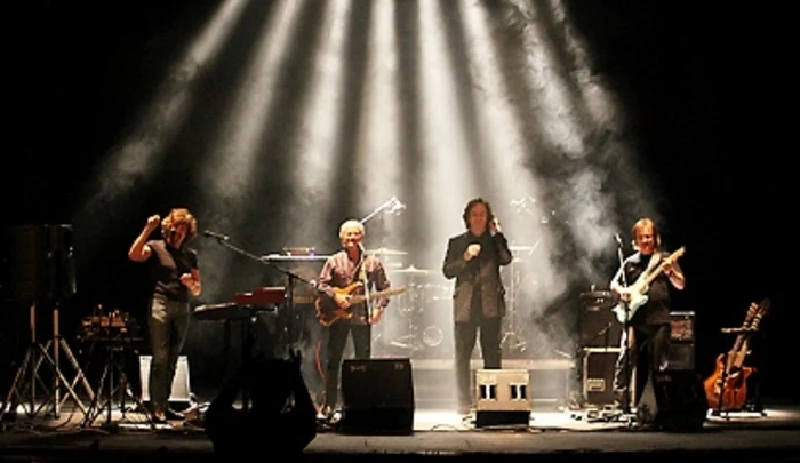
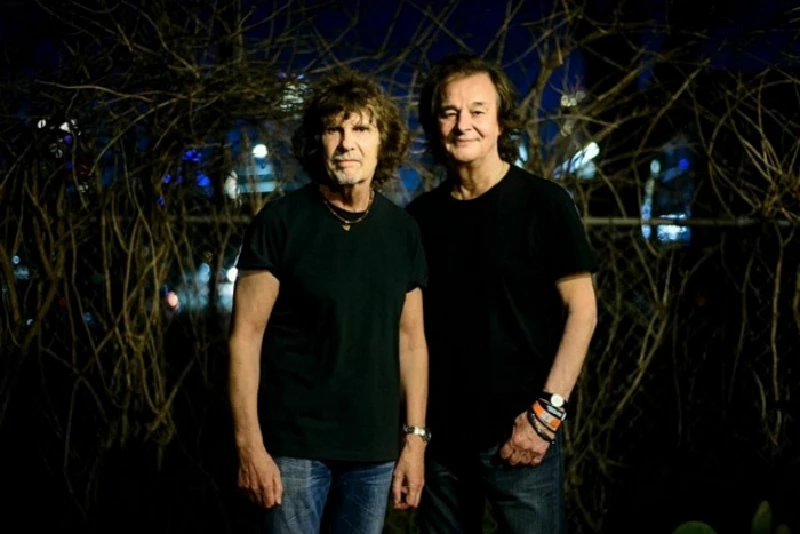
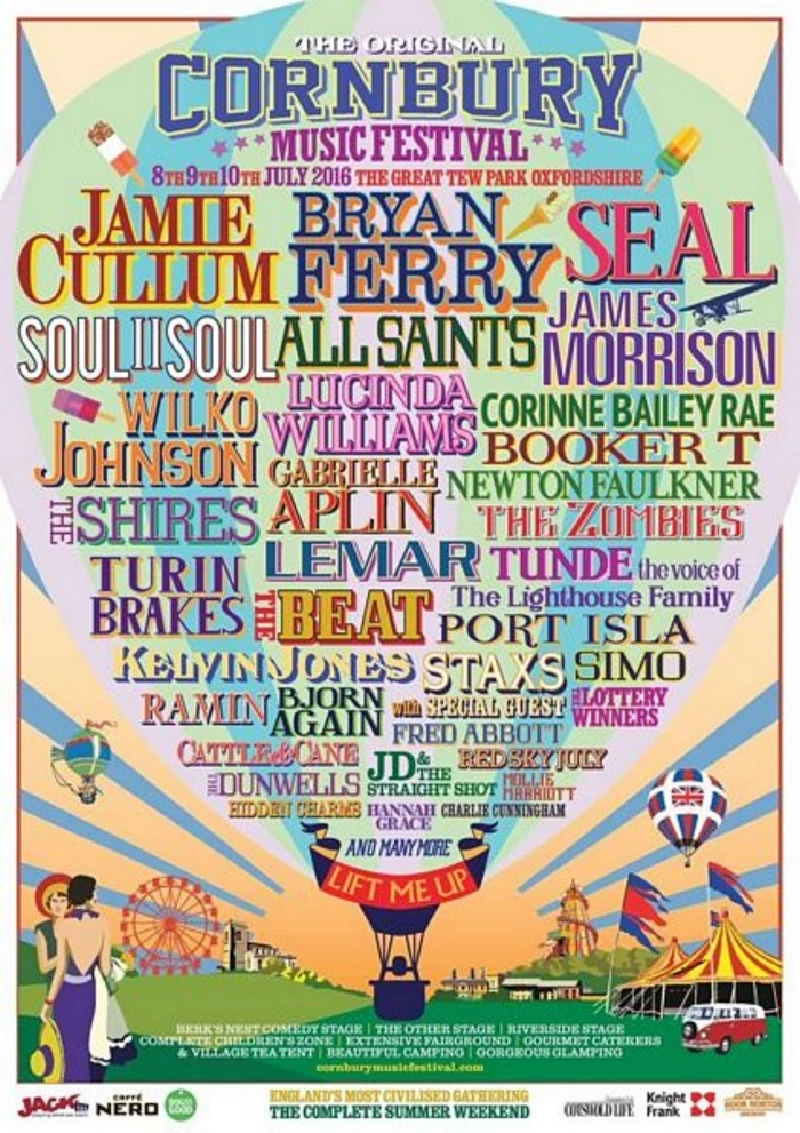
interviews |
|
Interview (2024) |
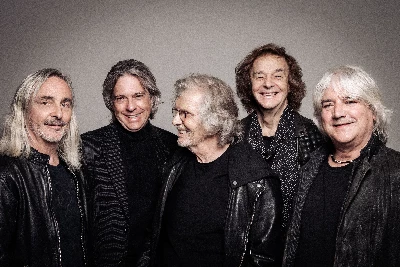
|
| Vocalist Colin Blunstone talks to Lisa Torem about the Zombies’ upcoming UK and US tours, special guests and how the music business has changed since the Sixties. |
| Interview with Rod Argent (2023) |
| Interview (2021) |
| Interview (2020) |
| Interview with Colin Blunstone (2018) |
| Interview (2016) |
| Interview (2015) |
| Interview (2011) |
profiles |
|
In the Beginning (2019) |
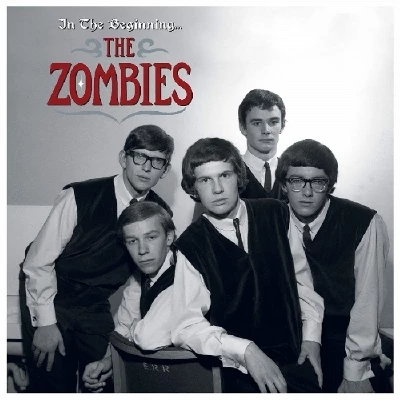
|
| Adam Coxon profiles 'In the Beginning', a new five LP vinyl only only box set of early Zombies recordings. |
live reviews |
|
Old Town School of Folk Music, Chicago, 1/7/2022 |
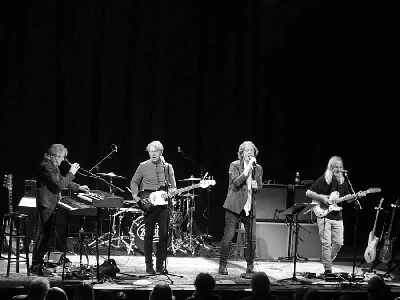
|
| After a two-year lockdown, The Zombies rose above adversity to tour and celebrate their 2019 Hall of Fame induction. Lisa Torem at the Old Town School of Folk Music in Chicago enjoys both the classics and new tunes. |
| City Winery, Chicago, 20/3/2018 |
| Mayne Stage, Chicago, 1/8/2012 |
| Ferry, Glasgow, 19/11/2011 |
photography |
|
Photoscapes (2015) |
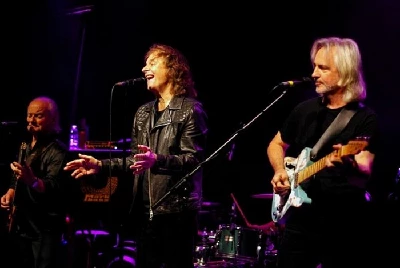
|
| Darren Aston takes photographs of iconic 60's band the Zombies at the Arts Club in Liverpool |
reviews |
|
Breathe Out Breathe In (2011) |
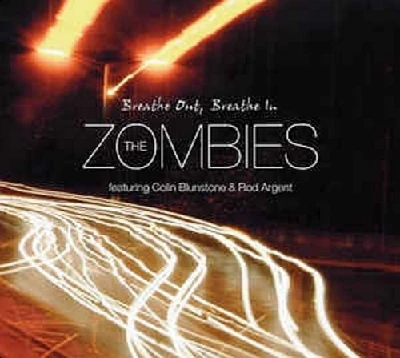
|
| Occasionally effective latest album from influential 60's act the Zombies, which, however, doesn't unfortunately match up to the classic work of their past |
most viewed articles
current edition
Carl Ewens - David Bowie 1964 to 1982 On Track: Every Album, Every SongArmory Show - Interview with Richard Jobson
John McKay - Interview
Colin Blunstone - Thalia Hall, Chicago, 16/7/2025
Bathers - Photoscapes 1
Billie Eilish - O2 Arena, London, 10/7/2025
Loft - Interview
Visor Fest - Valencia, Spain, 26/9/2025...27/9/2025
Sir Tim Rice - Interview
Robert Forster - Interview
previous editions
Heavenly - P.U.N.K. Girl EPManic Street Preachers - (Gig of a Lifetime) Millennium Stadium, Cardiff, December 1999
Beautiful South - Ten Songs That Made Me Love...
Peter Perrett - In Dreams Begin Responsibilities Interview Part One
Boomtown Rats - Ten Songs That Made Me Love....
Oasis - Oasis, Earl's Court, London, 1995
Coldplay - Wembley Arena. London, 16/8/2022
Trudie Myerscough-Harris - Interview
Pixies - Ten Songs That Made Me Love...
Prolapse - Interview
most viewed reviews
current edition
Davey Woodward - Mumbo in the JumboSick Man of Europe - The Sick Man of Europe
Lucy Spraggan - Other Sides of the Moon
Blueboy - 2
Amy Macdonald - Is This What You've Been Waiting For?
Bush - I Beat Loneliness
Suzanne Vega - Flying With Angels
Phew, Erika Kobayashi,, Dieter Moebius - Radium Girls
Alice Cooper - The Revenge of Alice Cooper
Cynthia Erivo - I Forgive You
Pennyblackmusic Regular Contributors
Adrian Janes
Amanda J. Window
Andrew Twambley
Anthony Dhanendran
Benjamin Howarth
Cila Warncke
Daniel Cressey
Darren Aston
Dastardly
Dave Goodwin
Denzil Watson
Dominic B. Simpson
Eoghan Lyng
Fiona Hutchings
Harry Sherriff
Helen Tipping
Jamie Rowland
John Clarkson
Julie Cruickshank
Kimberly Bright
Lisa Torem
Maarten Schiethart